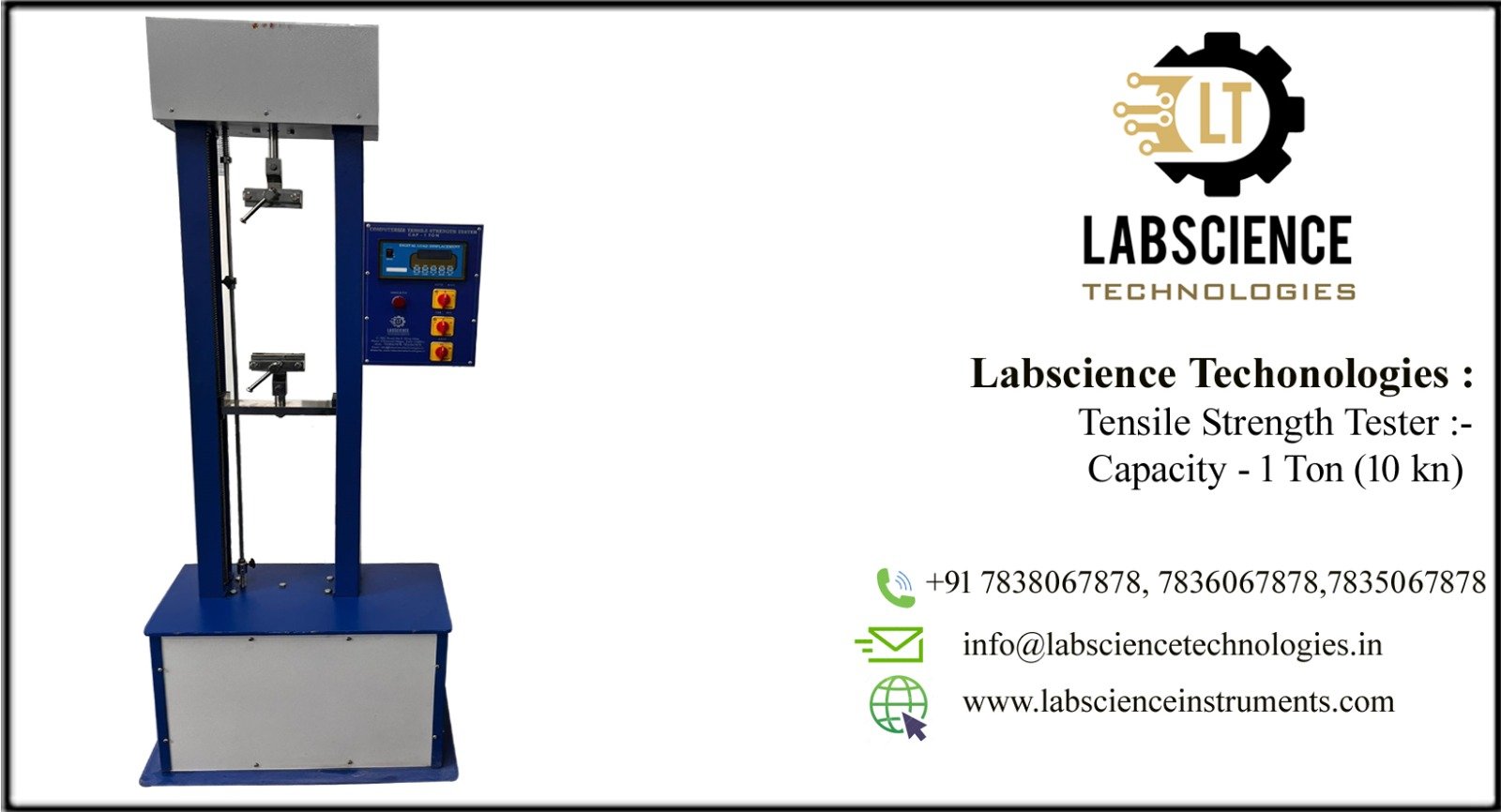Universal Testing Machine
A Universal Testing Machine (UTM) is a versatile testing instrument used to measure the mechanical properties of materials such as tensile strength, compression resistance, and flexural capabilities. This machine is essential in industries like plastics, metals, textiles, and construction materials, where understanding material behavior under different forces is crucial.
The UTM operates by applying controlled force to a specimen, either by pulling (tensile) or pushing (compression), and measuring its response. Key parameters such as ultimate tensile strength, yield strength, elongation, and modulus of elasticity can be determined. Modern UTMs are typically equipped with digital interfaces, allowing precise control, data collection, and analysis of results.
UTMs are available in various configurations, with different capacities depending on the application. Some models are designed for high-load testing, while others cater to more delicate materials. Calibration and regular maintenance ensure accurate measurements over time, which is critical for industries adhering to strict quality control standards.
Besides tensile and compression testing, UTMs can also perform bending, shear, and cyclic tests, making them a universal solution for material testing. Their flexibility, ease of use, and accuracy have made them a vital part of research, development, and quality assurance across multiple sectors.
A Universal Testing Machine (UTM) is equipped with a range of advanced features that make it versatile for testing different materials. Here are the key features:
Tensile and Compression Testing: The UTM allows for both tensile (pulling) and compression (pushing) tests on various materials, helping to assess their strength and durability under different forces.
Digital Load Measurement: Most modern UTMs are fitted with load cells that provide accurate measurements of force applied, ensuring precise and reliable data.
Crosshead Control: The crosshead, which moves up and down to apply tension or compression, is electronically controlled for high precision. This allows users to set the speed of the test according to the material’s specifications.
Versatile Grips and Fixtures: The UTM can be equipped with different grips and fixtures to accommodate various materials, such as metals, plastics, rubber, and textiles.
Data Acquisition and Analysis Software: Integrated software in UTMs allows real-time data collection, detailed analysis, and report generation for better quality control and research outcomes.
Wide Range of Testing: Apart from tensile and compression tests, UTMs can also perform flexural, bending, shear, and fatigue tests, making it a comprehensive solution for material testing.
High Load Capacity: Available in models capable of testing materials under varying loads, from a few Newtons to several thousand kilonewtons, depending on the application.
These features make the UTM indispensable in quality assurance and research laboratories.
A Universal Testing Machine (UTM) is a versatile device with specifications designed to accommodate a variety of material testing applications. Here are the typical specifications:
Load Capacity: The UTM’s load capacity ranges from 1 kN to 3,000 kN, depending on the model. This broad range allows the machine to test both delicate and extremely strong materials.
Crosshead Speed: The crosshead speed typically ranges from 0.001 mm/min to 1,000 mm/min, allowing precise control of testing conditions. The speed is adjustable based on the material and the type of test being conducted, ensuring flexibility in testing requirements.
Force Accuracy: UTMs provide high accuracy in measuring the applied force, typically with an error margin of ±0.5% to ±1%, ensuring precise and reliable test results.
Displacement Measurement: The displacement measurement is accurate to within ±0.01 mm, which is crucial for analyzing elongation and deformation of materials.
Test Space: UTMs typically feature an adjustable test space. Vertical clearance can range from 600 mm to 1,500 mm, with a horizontal space of around 400 mm to 600 mm, accommodating various specimen sizes.
Grips and Fixtures: UTMs come with interchangeable grips, including wedge, hydraulic, and pneumatic options, enabling the testing of different materials such as metals, plastics, and textiles.
Data Acquisition System: The UTM uses advanced computer control for precise force application, data logging, and analysis, making it easy to monitor results in real-time.
These specifications make the UTM a robust and flexible solution for material testing across industries.
Kindly fill this form to demand a call-back to from our client support boss with esteeming and details.
Call our Specialists for the Best Deal
+91 7838067878
Call Now
+91 7838067878

